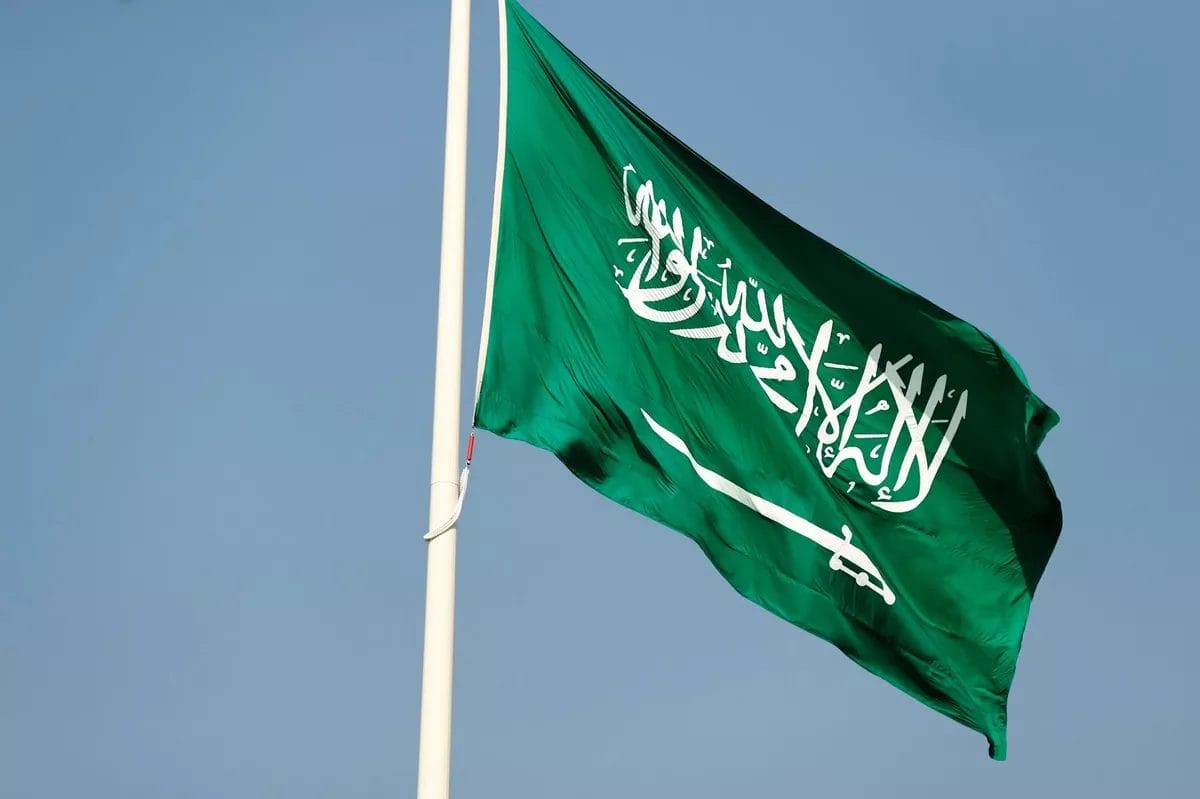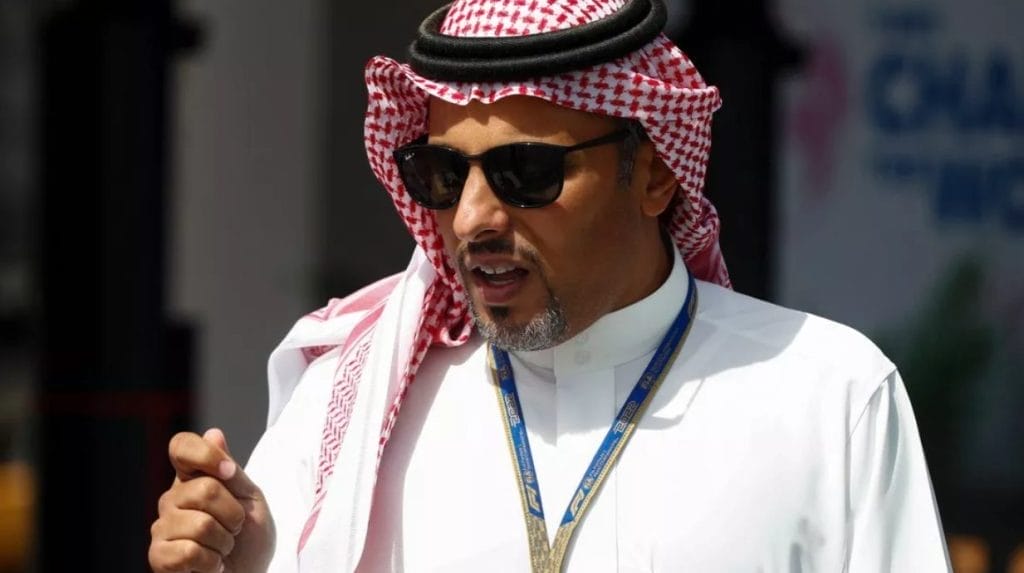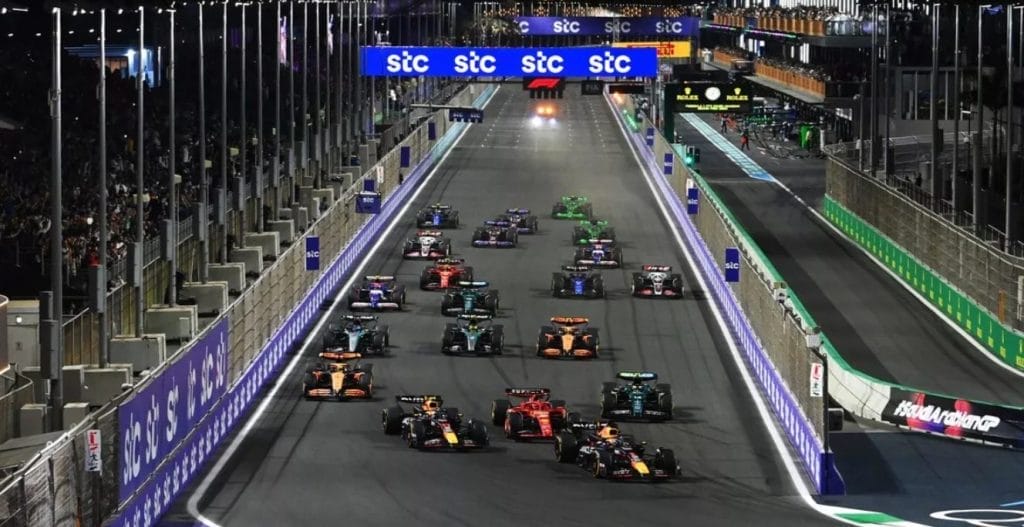
Saudi Arabia’s Growing Influence in Formula 1
As Formula 1 returns to Saudi Arabia this weekend, the Kingdom’s increasing presence in the sport continues to raise questions about its future role in motorsport. The country’s investments in motorsport in recent years have been significant, with massive backing from major companies like Aramco and Maaden, as well as the Public Investment Fund (PIF), which is actively involved in Formula E. But now, the idea of Saudi Arabia owning its own Formula 1 team has been floated by Saudi Prince Khalid bin Sultan Al-Abdullah Al-Faisal, and the prospect of this happening is certainly intriguing.
Prince Khalid’s recent comments during a press conference, as F1 heads back to Jeddah, have rekindled speculation about Saudi Arabia’s potential to enter F1 as an owner of a racing team. The Prince, who is one of the most influential figures in Saudi Arabia’s sporting push, expressed that while buying an F1 team is not without its challenges, it is certainly “difficult, but possible.” Saudi Arabia has made great strides in motorsport recently, and its ambition doesn’t seem to stop there. The idea of owning an F1 team would represent the next logical step in the country’s evolving relationship with Formula 1 and motorsport at large.
Formula 1 is no stranger to new investors, with the sport recently witnessing a growing trend of teams being acquired or sponsored by companies and individuals with deep pockets. And Saudi Arabia, with its strong economic position and appetite for global influence, may very well be the next in line to make its mark in Formula 1, either as a team owner or an even more influential sponsor.
Saudi Arabia and Its F1 Investment Strategy

Saudi Arabia’s involvement in Formula 1 goes beyond hosting a Grand Prix in Jeddah every year. The country has already shown significant interest in the sport through its strategic sponsorships and partnerships. Aramco, the state-run oil giant, is a major sponsor of the Aston Martin F1 team, and Saudi Arabia’s Public Investment Fund (PIF) has stakes in Formula E, the electric motorsport series that shares a close relationship with F1. These investments signal the Kingdom’s deepening ties with motorsport, and more specifically, with Formula 1, making the idea of a Saudi-owned F1 team more plausible than ever.
Prince Khalid’s remarks about the possibility of buying an F1 team indicate that the Kingdom isn’t just satisfied with hosting races and sponsoring teams. Saudi Arabia has its sights set on more direct involvement in the sport. As he explained, “F1 is opening up to new markets, sales are increasing globally, and there’s a partnership between Aramco and Aston Martin. All the signs point to Saudi Arabia being able to buy a team, if it makes sense and is possible. After all, who doesn’t like making money?”
This sentiment reflects a pragmatic view of the situation. Formula 1 has become an increasingly profitable business in recent years, with TV rights deals, sponsorships, and the global popularity of the sport contributing to its financial success. Saudi Arabia is keen to enter this lucrative space, and owning an F1 team could be an appealing proposition, especially given the potential for growth in the sport’s commercial value.
However, while Prince Khalid is open to the idea, he acknowledged that there are complexities involved. “But who you partner with, which team to buy, and how to manage it are all very complicated decisions. It’s not an easy process,” he said. The intricacies of buying and managing an F1 team, particularly one in a competitive environment with strict regulations, are not lost on the Prince. Nevertheless, the notion of a Saudi-owned team is not off the table—far from it.
Complexities of F1 Team Ownership

Prince Khalid’s comments highlight the challenges that come with F1 team ownership. Formula 1 is not just a sport; it’s a high-stakes business with a complex structure. The current grid is made up of 12 teams, but only 11 of them are actively racing, with the 12th spot theoretically available for an interested buyer. Furthermore, there are discussions that in the coming years, one or two teams may be put up for sale, which could provide an opportunity for Saudi Arabia to enter the sport in a meaningful way.
With F1 expanding into new territories and securing lucrative deals in Asia, the Middle East, and North America, the sport is becoming a more attractive investment for global players. Saudi Arabia’s vast financial resources make it an ideal candidate for this kind of investment, especially when considering the increasing value of F1 in global sports media and sponsorship deals. Prince Khalid has pointed out that the Kingdom already has a strong relationship with Formula 1 through its Grand Prix and various sponsorship deals, and this could potentially lead to a larger stake in the sport down the line.
Despite the many advantages, the complexities of running an F1 team are considerable. Not only does a team need significant financial backing, but it also requires careful strategic management, a deep understanding of motorsport, and a network of technical and operational expertise. Simply put, F1 is a business as much as it is a sport, and operating a team requires more than just money—it requires a long-term vision, experienced leadership, and the ability to navigate the sport’s regulatory environment.
As Prince Khalid mentioned, if Saudi Arabia does enter the world of F1 team ownership, it would want to do so in the right way. “If a Saudi company is involved, I would want it done properly and successfully,” he said. “It’s a complex issue… but why not?”
This cautious optimism reflects the Prince’s balanced approach to the idea of owning an F1 team. While he is clearly enthusiastic about the potential, he is also mindful of the work involved and the long-term commitment required to make such a venture successful.
Saudi Arabia Grand Prix: More Than Just a Race
Beyond the potential of an F1 team, Saudi Arabia’s Grand Prix is already a major part of the Formula 1 calendar. The Saudi Arabian Grand Prix, which debuted in 2021 in Jeddah, has quickly become one of the most anticipated races on the calendar, thanks to its stunning backdrop, modern infrastructure, and enthusiastic fanbase.
This year’s race will be held later this weekend, but the real question is how the Saudi Arabian Grand Prix will evolve in the coming years. Prince Khalid has made no secret of his desire to see the race take a more prominent spot in the calendar. As it stands, the Saudi Arabian Grand Prix is held in the middle of the season, following Bahrain. However, Prince Khalid’s goal is for the race to become the opening event of the Formula 1 season.
“We really want this race to be the first of the season,” Prince Khalid explained. “But F1 has its obligations. It might be easier for them to open the season with Bahrain because testing is often done there. But for us, the first race is ideal.”
The idea of making Saudi Arabia the season opener would be a strategic move, as it would align with the country’s desire to present itself as a key player in the world of motorsport. Furthermore, the timing of the race could provide an economic boost, with fans more eager to attend a race at the beginning of the season rather than at the end, when many of the championship battles may already be decided.
However, as the Prince pointed out, the weather conditions in the region play a significant role in determining the timing of the race. “The weather is important. Either we are at the end of the season, which is not preferred, or in the middle of the season, but it’s very hot then. Qatar and Abu Dhabi are at the end of the season, so the only suitable option is to open the season with Bahrain.”
Despite these challenges, Saudi Arabia’s ambition to host the opening race in the future remains strong. If successful, it would cement the Kingdom’s place as a key player in Formula 1 and further highlight the country’s commitment to the sport.
The Future of Saudi Arabia and Formula 1
With its ambitious plans to increase its role in motorsport, Saudi Arabia is on the verge of becoming an even more influential force in Formula 1. Whether it’s through hosting races, sponsoring teams, or potentially buying a team outright, the Kingdom’s involvement in the sport is only set to increase in the coming years.
The prospect of a Saudi-owned Formula 1 team, while still a distant possibility, would mark a new chapter in Saudi Arabia’s motorsport journey. With a vision for success, a willingness to invest, and a commitment to getting things done the right way, Saudi Arabia is positioning itself as a serious contender in the world of motorsport. The question is no longer “if” Saudi Arabia will become more involved in F1, but rather “how” and “when.” For now, it’s a case of watching how this exciting development unfolds.







